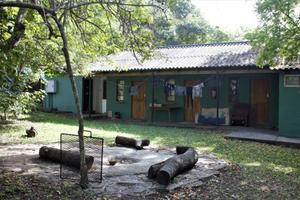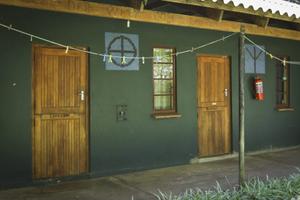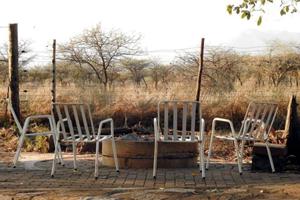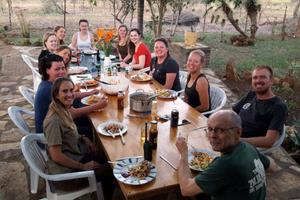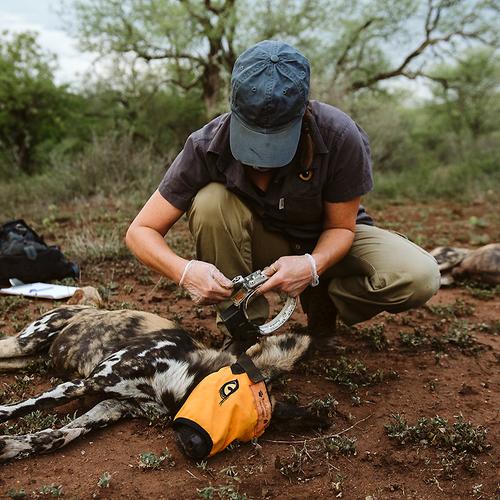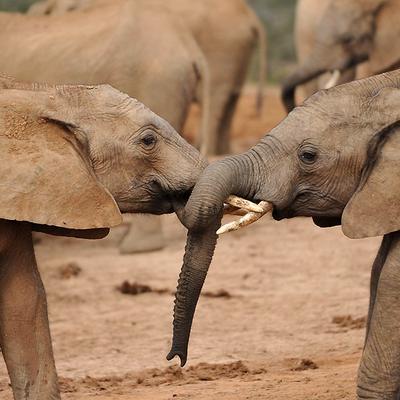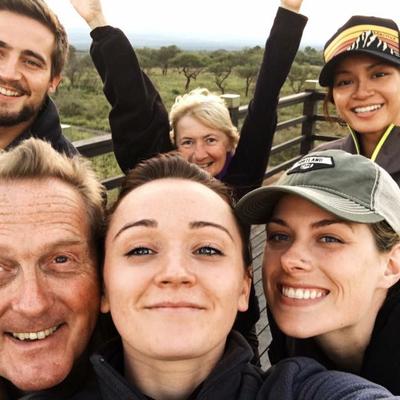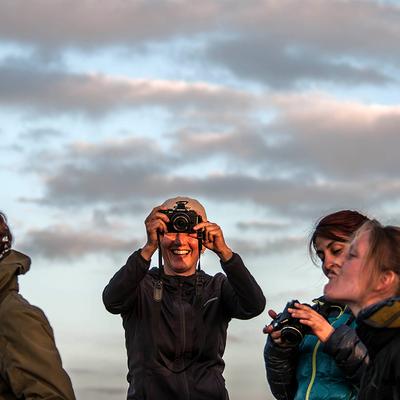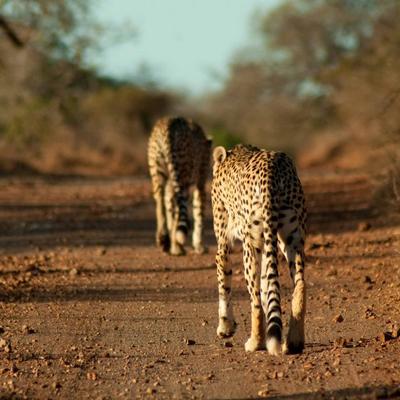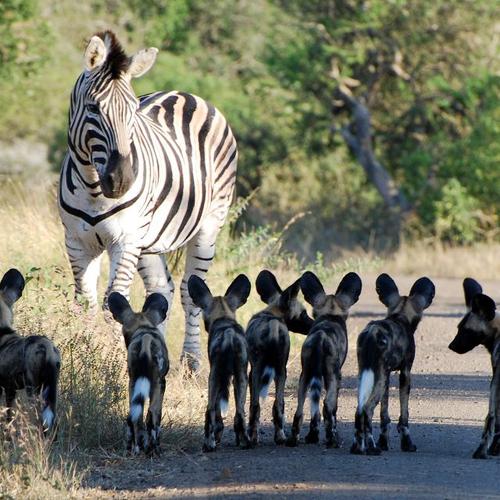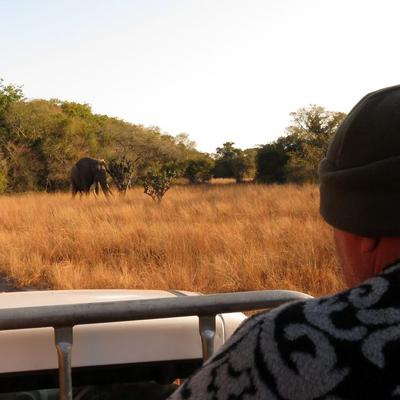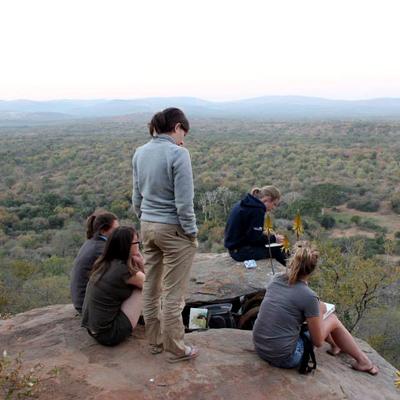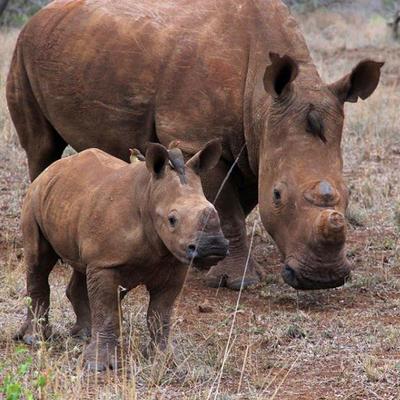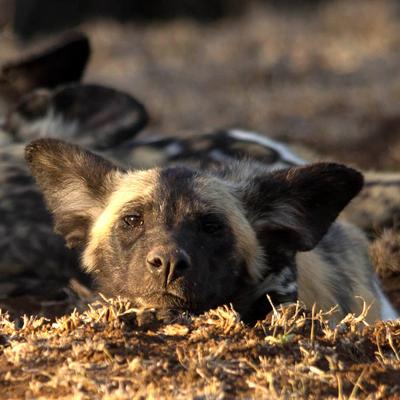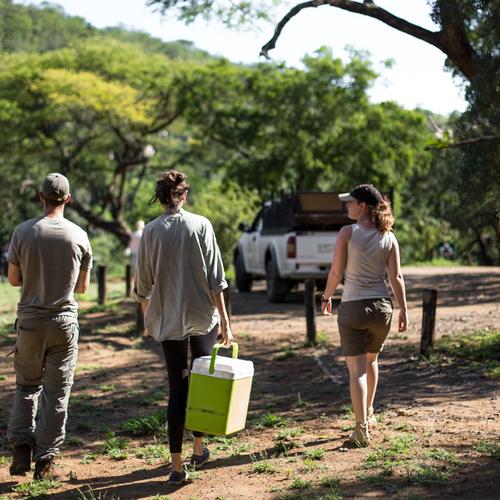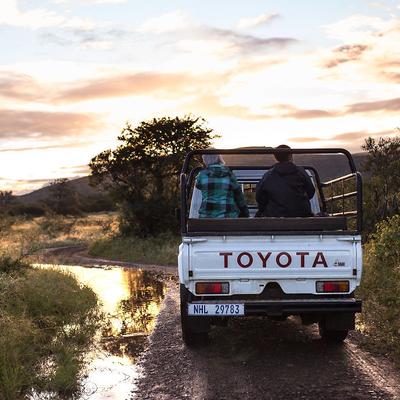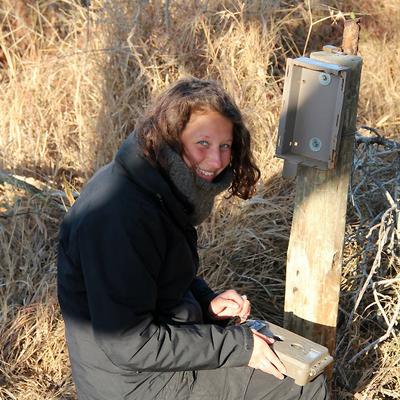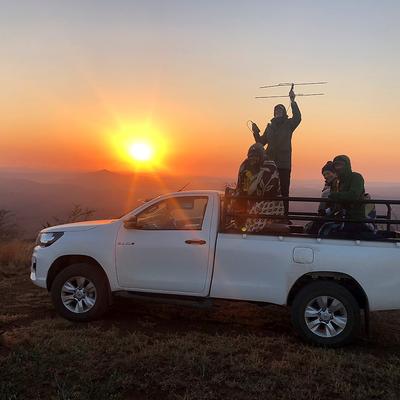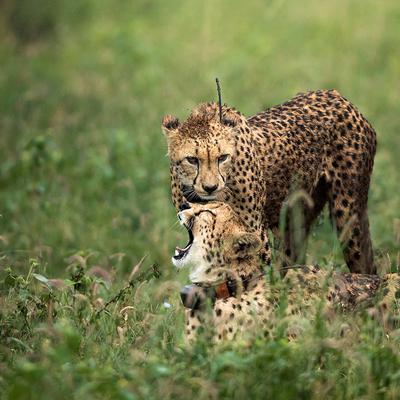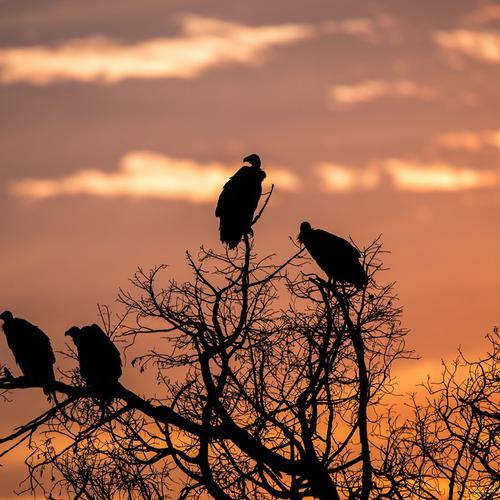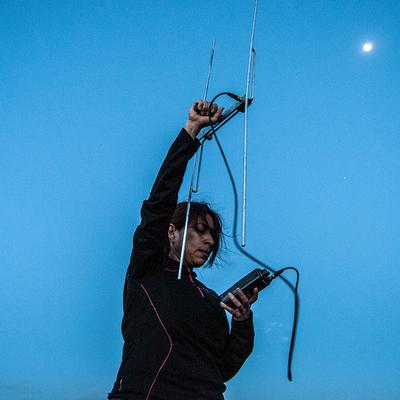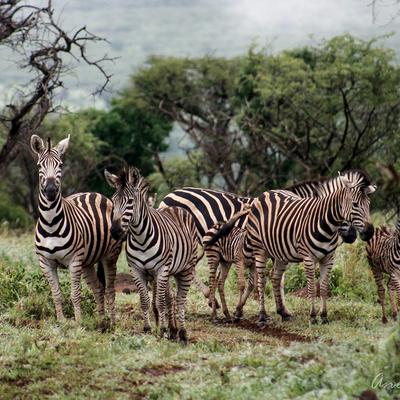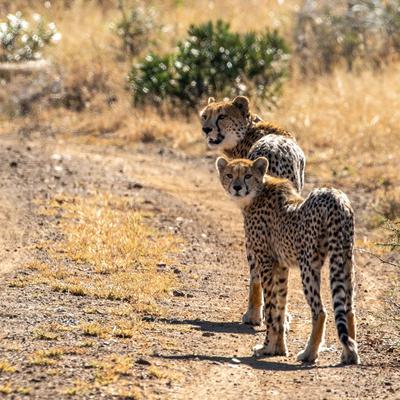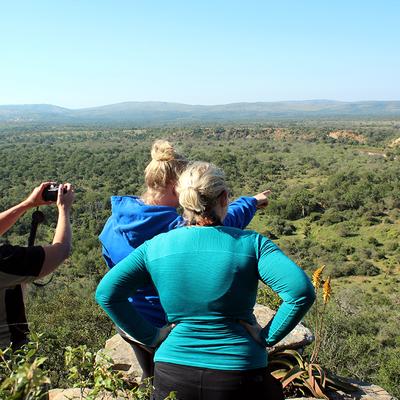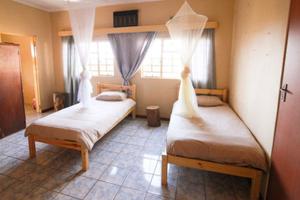

Zululand Wildlife Conservation Project
Assist in vital conservation efforts in South Africa, working to protect the iconic ‘Big 5’ and other priority endangered species.
‘Zulu’ in translation means ‘Heaven’, and with Zululand’s unparalleled scenery, enigmatic cultures and rich biodiversity, it is not that far a stretch of the imagination to consider it so. Roaming the regions vast and remarkable landscapes, you’ll find Africa’s most iconic animals such as the renowned ‘Big 5’ and an abundance of species you’ve yet to be acquainted with, every one of which is vital to the survival of Zululand’s ecosystems.
Habitat loss and fragmentation, the poaching crisis, and human-wildlife conflict are still real threats facing the country’s wildlife and sadly, have resulted in hundreds of African species being listed from vulnerable to critically endangered on the IUCN Red List. Across five unique and stunning game reserves, the Zululand Wildlife Conservation Project specialises in the re-introduction and monitoring of threatened species and is the only conservation organisation in South Africa that is supported by and works with conservation giants such as the World Wildlife Fund, the Endangered Wildlife Trust, the Wildlands Conservation Trust, and more. Since its inception, the project has re-introduced over 200 critically endangered black rhinos into the wild, as well as relocating over 800 additional animals across a variety of endangered species, including wild dogs and big cats.
As a volunteer, you’ll support the vital and intensive monitoring activities that allow these species the chance to flourish once again. As part of an intimate volunteering group, you’ll spend your time out in the field tracking wildlife, collecting and recording data and perhaps even assist with the collaring of priority species, all of which aids their survival. This project will offer you the extraordinary opportunity to embark on an authentic African adventure with an underlying message of wildlife conservation at its heart.
Speak To A Travel Expert
Activities
During your time on the project, you could be placed on any of the five stunning wildlife reserves with the option to experience another reserve if you volunteer for three weeks or more. Each of the reserves are home to the ‘Big 5’ but all have a slightly different conservation focus. Below you will find activities that take place across all the reserves and you can find more information about each within the project guide.
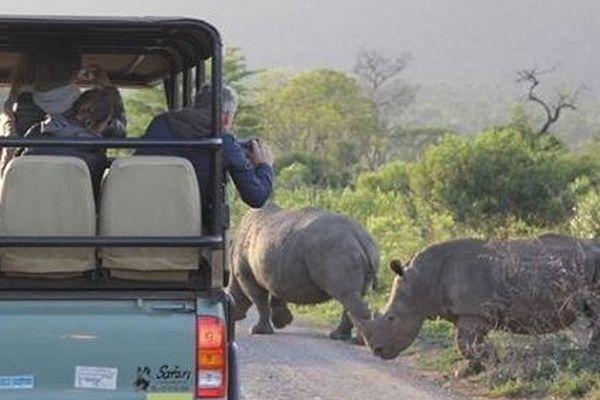
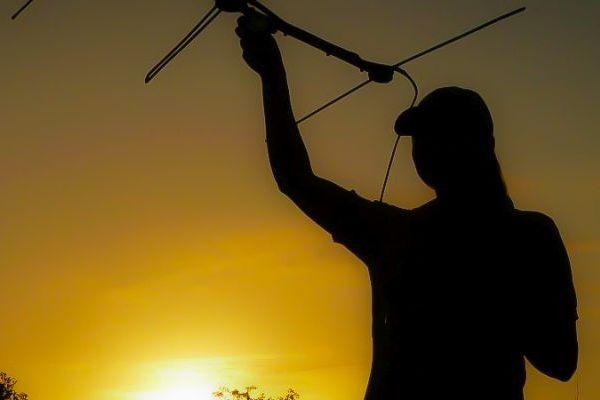
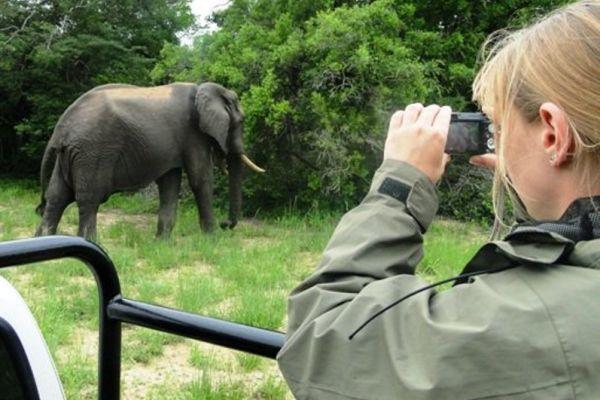
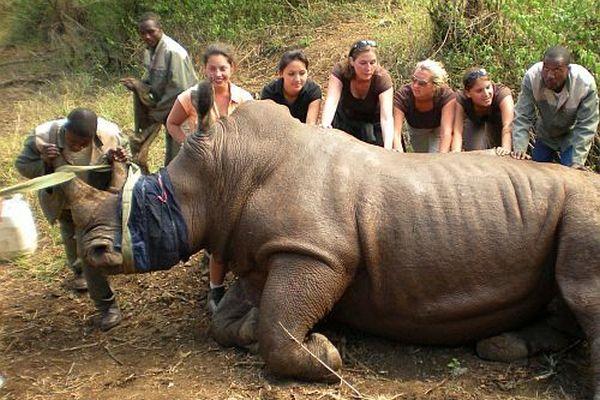
Itinerary
Please note itineraries are subject to change and what follows is simply a rough guideline.
Start Dates & Prices
To secure a place on this project a deposit of $245 is required at the time of booking, with the remaining balance due any time up to 60 days prior to your start date.
Select a duration below to see the available start dates. All dates shown are currently available for you to join this project!
Accommodation
Accommodation
No matter which of the reserves you are based at, you can rest assured that your accommodation will be comfortable and surrounded by beautiful African scenery. Rooms are generally shared on a same-sex twin basis (or on occasion three to a room) and your bed linens and pillows are provided. Each accommodation has western-style toilets, warm showers, communal kitchens and lounge areas, as well as lovely outside barbecue areas for you to dine and relax in. They are also located within the reserves themselves, so you can expect stunning views and wandering wildlife!
Meals & Beverages
Food is provided for you on this project, though you will need to prepare your meals yourself. All reserve accommodation comes with a fully equipped kitchen with an oven, stove, microwave and solar cooker available for you to use. You may wish to prepare meals as a group, which can be the perfect opportunity to learn a new dish or show off your cooking skills. Every week the project staff will take you into town to stock up on food supplies. Dietary requirements can be catered for, though we politely ask you to let us know of any in advance of travel.
Project Details
When Is The Best Time To Volunteer?
The monitoring of wildlife on this project happens 365 days a year, meaning the only factor that may affect your decision of when to volunteer is the weather. Zululand has a subtropical climate, as it is situated in the northern part of the KwaZulu-Natal province, bordering Mozambique.
The summer season is considered October to April when temperatures average 30°C (86°F), and overnight temperatures remain at around 25°C (77°F). Summer is usually considered Zululand’s rainy season which may cause afternoon/evening thunderstorms – something that is truly incredible to experience in Africa! With the rains, wildflowers start to bloom and new grass emerges in a brilliant display of green.
May to September is the winter season which is mild and dry with temperatures sitting around 25°C (77°F) and as vegetation isn’t as dense, the visibility of animals can be better!
Getting There
You will need to fly into Richards Bay Airport (RCB) on your project start date, and there are daily flights that connect via Johannesburg. You will need to book a flight that lands before 12:30pm to make your transfer time, as unfortunately, transfers for flights arriving after this time are not available. If you are unable to arrive by 12:30pm, we recommend arriving a day early and staying in a local hotel.
On your final day, your departure flight should be booked to depart no earlier than 1:10pm, to allow you enough time to get back to Richards Bay Airport.
Visa Requirements
Citizens of most countries, including the UK, USA, Canada, Australia and most of those within the EU, do not need to obtain a visa to enter South Africa and are granted entry for up to 90 days upon arrival. You will, however, need at least 2 blank pages in your passport for the immigration officials to use and your passport must be valid for a period of at least 6 months from your date of entry.
If you are unsure of your individual visa requirements, we recommend speaking to your local South African embassy at least 2 months prior to travel.
Fitness & Skills
The majority of the work is undertaken from a tracking vehicle, however, at least a moderate level of fitness is advised as you may need to walk for periods of time in order to track certain species and may need to assist with manual tasks in the hot weather. No specific skills are needed – all we ask is that you’re enthusiastic and willing to work as part of a team.
Vaccinations
There are no specific vaccination or medical requirements needed to join this project. The vaccinations required will depend on the individual medical history of each volunteer. We recommend that you consult with your doctor/GP regarding your own vaccination needs as this will ensure you are protected and prepared to travel. In conjunction with this, we also recommend that you take a look at the Fit for Travel website for more helpful information on how best to prepare for your experience.
Gallery
What's Included
- Accommodation
- Three meals per day
- Airport transfers
- Full orientation and support from the project managers
- A conservation donation
What's Not Included
- Flights
- Travel insurance
- Visas
